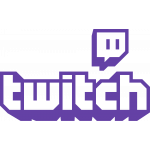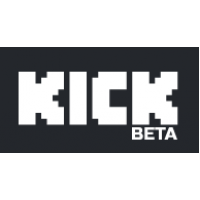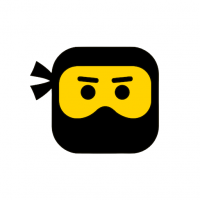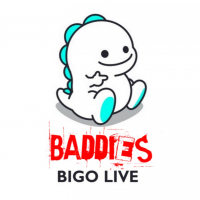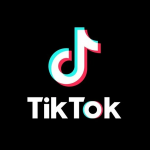How to Become an Esports Commentator
Esports today is not only about professional player competitions, but a whole industry with millions of viewers worldwide. At the heart of this world are commentators who transform gaming matches into captivating shows, maintaining audience attention and making broadcasts emotionally rich. Aspiring to become a professional commentator, it's important to understand that this requires not just speech talent, but systematic preparation, game knowledge, analytical skills, and self-promotion ability. In this article, we'll detail how to enter the esports commentator profession and build a successful career.
Why the Esports Commentator Profession is in Demand
The world of esports is developing at a rapid pace. Tournaments are held annually for games like League of Legends, Dota 2, CS:GO, Valorant, PUBG and many others. Viewer interest is growing, and with it - the demand for professional commentators who can:
- Maintain match intrigue and dynamics
- Explain players' strategic decisions
- Create broadcast branding and retain audience
The commentator brings the broadcast to life and makes complex gaming moments understandable even for beginners.
A professional voice helps viewers understand why a team chose a particular tactic.
A popular commentator attracts viewers and subscribers, increasing tournament value for sponsors.
This means that an esports commentator career is not only interesting but financially promising, especially for those who can build a personal brand and use social platforms for promotion.
Defining Direction and Specialization
The first thing to start with is choosing a specialization. Commentators can work in different formats:
Play-by-play (PBP)
The main commentator describing events in real-time, focusing on player actions.
Analyst-caster
An analyst explaining strategy, hero selection, tactics, and team mistakes.
Host / Presenter
The studio host for tournament segments, player interviews, match announcements.
Direction choice depends on your strengths: emotional delivery, strategic thinking, or audience communication skills. Once determined, you can purposefully develop the necessary skills.
Deep Game Knowledge and Esports Scene
A commentator without game knowledge is empty sound. It's necessary to:
- Play the game professionally
- Study professional matches
- Follow updates and meta
- Read forums and analytical articles
Gameplay experience helps better understand player action logic and explain their decisions to viewers.
Watch tournaments, analyze strategies, team behavior patterns, and individual player skills.
Game patches and mechanic changes affect match flow, and commentators must be aware of all innovations.
Professional blogs, player interviews, and analytics help expand industry understanding and improve commentary quality.
Game knowledge and esports scene awareness are the foundation for building professional reputation.
Developing Public Speaking Skills
A commentator is primarily a voice and personality before the camera or microphone. It's important to develop:
- Clear diction and expressive speech
- Emotional intelligence
- Speech pace and rhythm
- Microphone and camera work
Viewers should easily perceive words even during complex gaming events. Regular vocal exercises, breathing work, and intonation practice will improve delivery.
The ability to convey emotions, create tension and joy keeps the audience engaged.
It's necessary to balance between fast event description and analytical pauses.
Streaming and audio/video content recording skills prepare you for professional broadcasts.
Regular practice and recording your own commentaries help identify weaknesses and perfect your style.
Practice and Portfolio Creation
To start a career, you need to gather experience and portfolio. It's recommended to:
- Start with amateur broadcasts
- Record demo videos
- Interact with online communities
- Collaborate with local and amateur tournaments
Stream your own games or commentate local tournaments - this provides practice and initial materials.
Several short commentary videos will show potential employers your style and skills.
Forums, Discord servers, and commentator groups provide experience exchange, feedback, and first orders.
Even small events provide experience, helping improve diction, reaction speed, and teamwork ability.
Over time, the portfolio becomes your key to professional tournaments.
Social Media and Personal Brand Development
Esports commentator popularity directly depends on personal brand. It's recommended to:
- Create content on YouTube and TikTok
- Maintain Twitter and Discord
- Promote your own channel
Short commentary clips, match analyses, or highlight reels attract audience and demonstrate skills.
Communication with fans and professionals strengthens reputation and expands contact network.
Personal commentary streams, player interviews, and analytical videos make you recognizable.
A well-developed personal brand increases chances for major tournament invitations and organizer contracts.
Professional Skills and Additional Competencies
For a successful career, these are useful:
- Multitasking - ability to simultaneously follow the game, team, and audience
- Analytical skills - ability to quickly analyze strategy and predict player actions
- Streaming software knowledge (OBS etc.) - understanding technical aspects of broadcasts
- Language skills - English or other languages open international audience
These competencies make a commentator a universal professional, in demand at any tournament level.
Finding Professional Opportunities
After accumulating experience and portfolio, it's time to seek first professional opportunities:
- Contact local tournament organizers
- Freelancer and streamer platforms
- Internships in esports organizations
Even small events look for commentators with bright delivery - a chance to show yourself and get recommendations.
Some services allow commentators to find tournament orders or individual broadcasts.
Support from clubs and media helps develop professional skills and contacts.
First projects require persistence but open paths to major events and international tournaments.
Conclusion: Path to Commentator Career
An esports commentator is a profession combining passion for games, public speaking skills, and analytical thinking. Success requires systematic preparation: game knowledge, practice, portfolio creation, personal brand work, and broadcast analysis.
By following the development strategy, actively participating in the industry, and perfecting skills, you can transform gaming passion into a career bringing pleasure and financial stability. Start practicing, creating content, and building reputation in esports - and someday your commentaries will gather thousands of viewers at major tournaments.
Our Services for Streamers
Our Services for Content Creators


